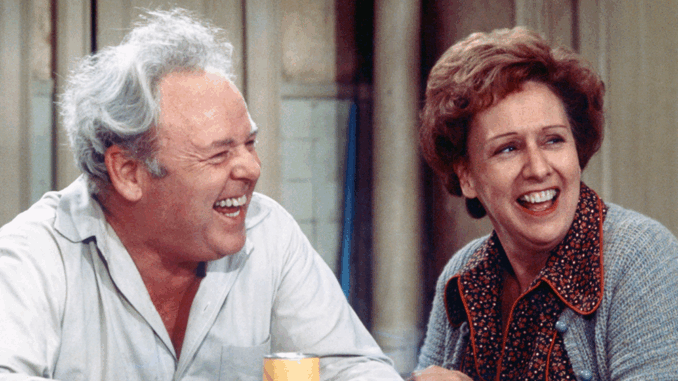
53 years after All in the Family first aired, we reflect on how this groundbreaking sitcom redefined TV with its fearless storytelling, unforgettable characters, and lasting cultural impact.
53 Years Later: Reflecting on the Legacy of All in the Family
In 1971, ABC introduced a sitcom unlike any that had come before—All in the Family. Even today, 53 years later, its influence still ripples through television. Packing incisive commentary, laugh-out-loud sharpness, and characters that felt like family, the show set an entirely new standard.
Breaking the Mold
Before All in the Family, sitcoms played it safe. Norman Lear shattered that with bold storytelling—Archie Bunker wasn’t just gruff; he was unapologetically bigoted, exposing the biases that existed in everyday America. Edith’s sweetness, Gloria’s youthful idealism, and Mike’s progressive clashes created a microcosm that mirrored the nation.
It wasn’t just the characters that broke ground—it was the topics. Racism, politics, war, sexual assault, homosexuality, class divides—the show didn’t shy away. It forced audiences to engage, argue, laugh, and think. Weekend primetime simply wouldn’t be the same after Archie.
A Cast That Delivered
The heart of the show lay in its cast. Carroll O’Connor’s raw, believable portrayal of Archie made the character unforgettable. Jean Stapleton balanced him with gentle wisdom as Edith. Sally Struthers brought a bold yet vulnerable spirit as Gloria, and Rob Reiner’s Mike was the stirring voice of logic. Their chemistry brought these themes to life—and made them unavoidably real.
Cultural Ripples That Still Resonate
Decades later, All in the Family is not just history—it’s influence. It paved the way for sitcoms willing to tackle tough subjects, eventually leading to shows like The Simpsons, Married… with Children, and Black-ish. It proved that humor and humanity can go hand-in-hand, even when the subject matter is uncomfortable.
A Legacy That Endures
53 years on, All in the Family remains a benchmark for thoughtful television. As conversations about social issues continue to evolve, Archie Bunker’s chair still holds its place in the Smithsonian—no small feat for a prop from a sitcom.
Whether you grew up watching the Bunkers spar at the dinner table or you’re discovering them for the first time on streaming, the show’s raw honesty and emotional complexity remain timeless.